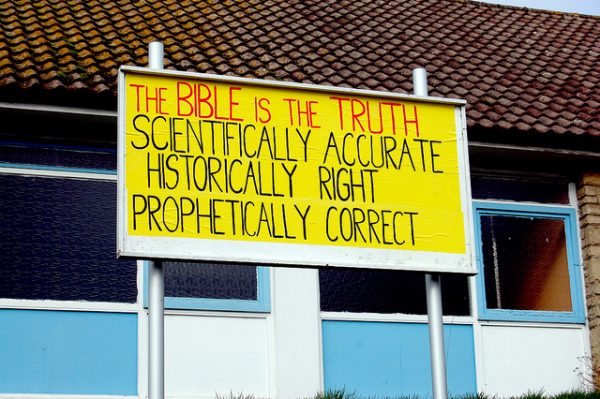
This month many celebrated Easter Sunday, symbolizing the resurrection of Christianity’s most prominent figure, Jesus. In this context, we find ourselves reflecting on the rise of the U.S. evangelical movement and the individuals who constitute its membership. Most recently progressives criticized evangelicals for their support of Donald Trump, who received over 80 percent of the evangelical vote despite his lack of religious practice, and his purported incidents of sexual misconduct. Sociological research provides a complicated picture of evangelicals in the United States and their beliefs.
The evangelical movement emerged during the mid-twentieth century and quickly gained popularity among conservative Whites in the 1990s. The core belief of evangelicalism, which has its roots in fundamentalism, lies in its assertion of the Protestant Bible as God’s actual word. Evangelicals see the Bible as the ultimate authority over moral matters and believe it cannot be contested. Their mission seeks to convert non-believers to Christianity so they may see Jesus as their savior and save their souls from eternal damnation.
- Christian Smith. 1998. American Evangelicalism: Embattled and Thriving. Chicago: University of Chicago Press.
- Andrew M. Greeley and Michael Hout. 2006. The Truth about Conservative Christians: What They Think and What They Believe. Chicago: University of Chicago Press.
Evangelicals also make up an essential part of the Republican Party. Several explanations exist for the strong link between evangelicalism and right-wing politics, including religiosity, gender and family ideologies, and moral standards. For example, evangelicals support political causes that reaffirm Biblical beliefs and support ideologies that center patriarchal models of family. Further, moral traditionalists hold universal ideas about what is right and wrong and support political causes and figures that uphold moral principles they perceive to be under threat.
- Steven Brint and Seth Abrutyn. 2010. “Who’s Right About the Right? Comparing Competing Explanations of the Link Between White Evangelicals and Conservative Politics in the United States.” Journal for the Scientific Study of Religion 49(2): 328-350.
- Jeff Manza and Clem Brooks. 1997. “The Religious Factor in US Presidential Elections, 1960-1992.” American Journal of Sociology 103(1): 38–81.
Yet, several scholars warn against overgeneralizing about evangelicals. For example, Andrew Greeley and Michael Hout point out that while a significant amount of African American Christians share some of these evangelical beliefs, they overwhelmingly support democratic policies. Furthermore, outside of the U.S. context, many conservative White Christians reject right-wing social politics.
- Lydia Bean. 2014. The Politics of Evangelical Identity: Local Churches and Partisan Divides in the United States and Canada. Princeton University Press.

Comments